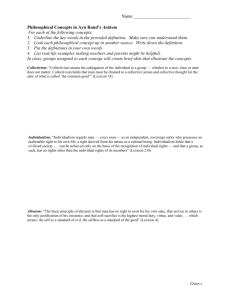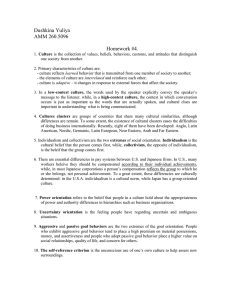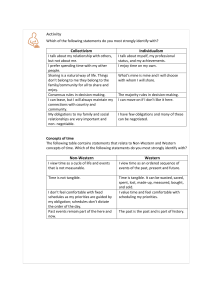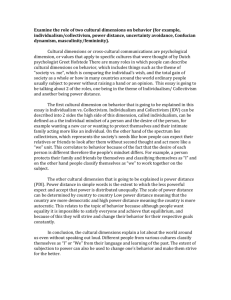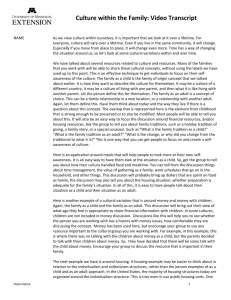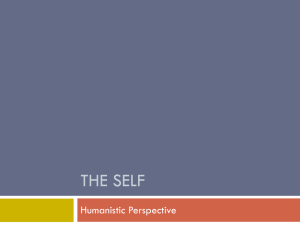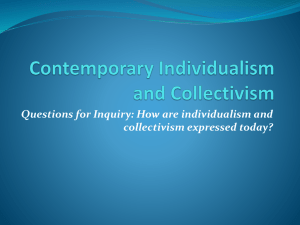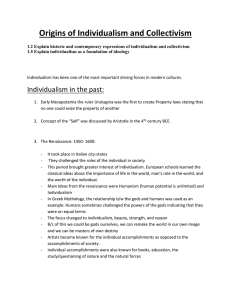Anthem Philosophical Concepts
advertisement
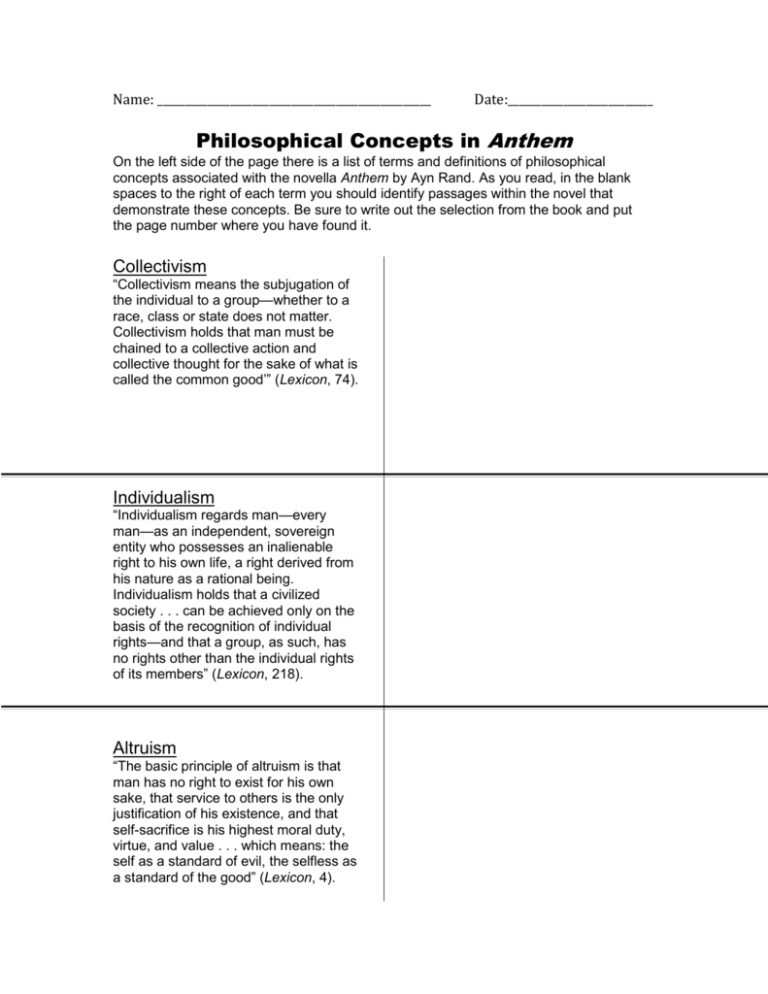
Name: _________________________________________________ Date:__________________________ Philosophical Concepts in Anthem On the left side of the page there is a list of terms and definitions of philosophical concepts associated with the novella Anthem by Ayn Rand. As you read, in the blank spaces to the right of each term you should identify passages within the novel that demonstrate these concepts. Be sure to write out the selection from the book and put the page number where you have found it. Collectivism “Collectivism means the subjugation of the individual to a group—whether to a race, class or state does not matter. Collectivism holds that man must be chained to a collective action and collective thought for the sake of what is called the common good’” (Lexicon, 74). Individualism “Individualism regards man—every man—as an independent, sovereign entity who possesses an inalienable right to his own life, a right derived from his nature as a rational being. Individualism holds that a civilized society . . . can be achieved only on the basis of the recognition of individual rights—and that a group, as such, has no rights other than the individual rights of its members” (Lexicon, 218). Altruism “The basic principle of altruism is that man has no right to exist for his own sake, that service to others is the only justification of his existence, and that self-sacrifice is his highest moral duty, virtue, and value . . . which means: the self as a standard of evil, the selfless as a standard of the good” (Lexicon, 4). Egoism “Egoism states that each man’s primary moral obligation is to achieve his own welfare, well-being, or self-interest . . . He should be‘selfish’ in the sense of being the beneficiary of his own moral actions (Glossary 12). Conformity “The act or habit of bringing [oneself] into harmony or agreement with others; of adhering to conventional behavior” (Webster’s 149) Obedience “The act or habit of bringing [oneself] into harmony or agreement with others; of adhering to conventional behavior” (Webster’s 149) Independence “One’s acceptance of the responsibility of forming one’s own judgments and of living by the work of one’s own mind . . . is the virtue of independence” (Glossary 23).
